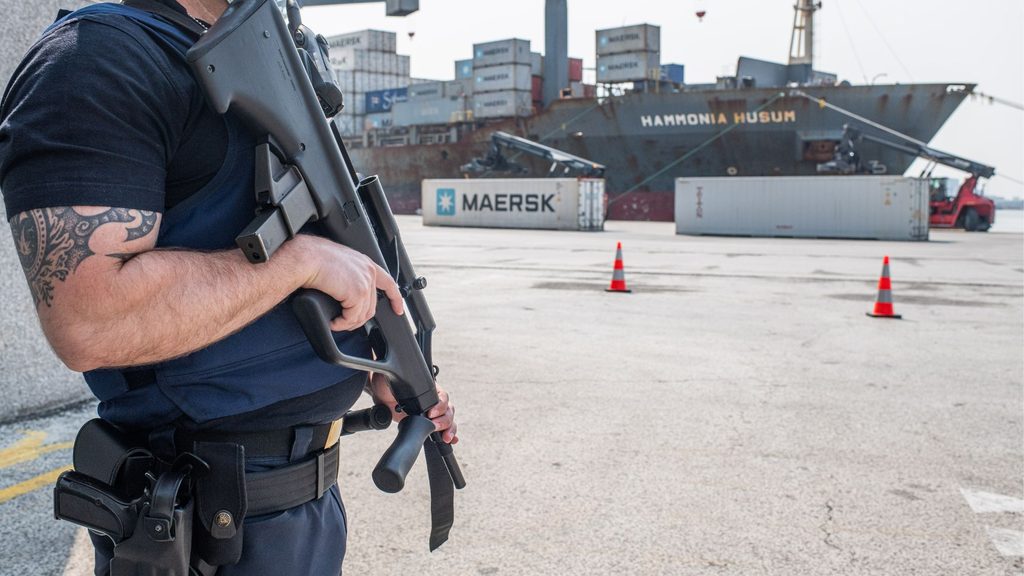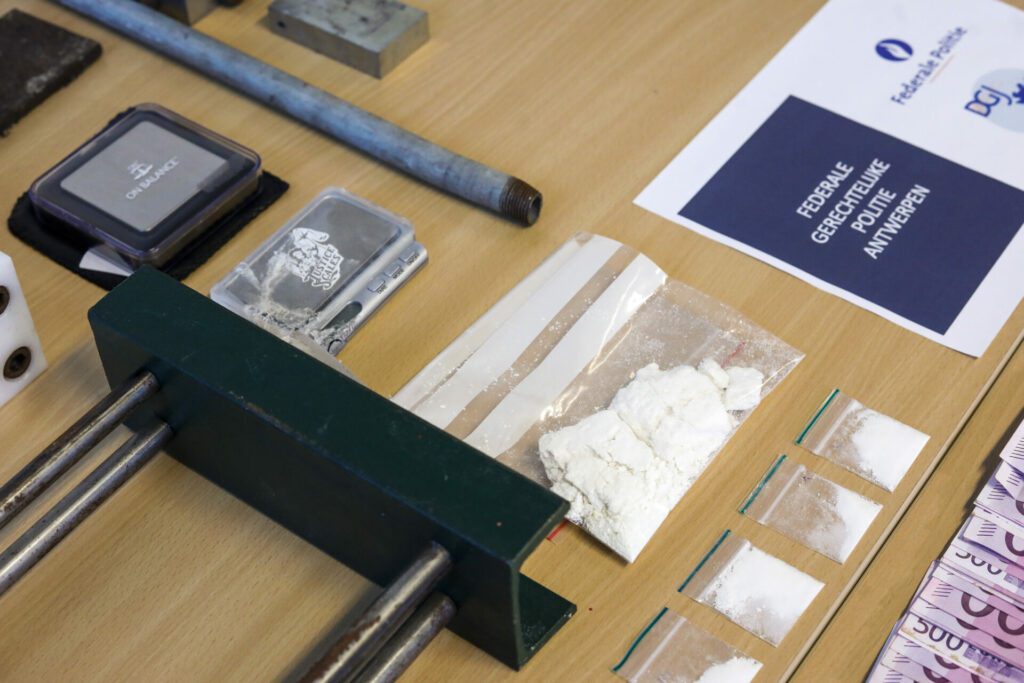A system that can immediately render seized drugs unusable will be introduced in Belgium in 2024, announced the national drugs commissioner Ine Van Wymersch.
Belgium's battle against the illicit drug trade took on new proportions this year, with the stakes raised significantly in November when armed gang members entered a customs site in the port of Antwerp and threatened several employees as they tried to recover a cocaine shipment that had been intercepted and impounded by port security.
"We have become a victim of our own success," Van Wymersch said on Flemish radio. However she highlighted the scale of the challenge – not only due to the highly organised and increasingly aggressive cartels that security forces face but also due to the insufficient means to dispose of seized drugs: "We simply cannot handle such enormous quantities of drugs with only one licensed incinerator."
A world-first
The drug commissariat (a new body started in 2023) was therefore asked to make drug processing more efficient in order to significantly reduce the safety risks associated with guarding confiscated substances.
"We then came up with the idea of a process in which cocaine is immediately deactivated as soon as the drugs have been seized," she said. Flemish Justice Minister Zuhal Demir previously also indicated that the Flemish Institute for Technological Research (VITO) would start working on this.
Van Wymersch compared the explosive case with those used during cash transports: that system uses paint and was introduced after cash transports became the target of very violent robberies in the 1990s. A similar technology is now being developed for seized cocaine.
The seized drugs would still have to be sent to the incinerator to be permanently destroyed. "But with such an 'intelligent neutralisation system' we buy time and that one incinerator might be enough," she explained.

An armed customs officer at the Port of Antwerp. Credit: Belga / Jonas Roosens
"If criminals know that once the Belgian Government has seized your cocaine, you will not get it back and it is completely lost, then there is no interest in trying to retrieve it. The storage and transport then do not pose any safety risks," Van Wymersch explained.
The "explosive case" must be developed for use in autumn 2024, but the Belgian drug commissariat is having to nearly start from scratch as there are no such devices currently in use elsewhere in the world. "Strangely enough, other countries have never had to think about this because they do not seize enormous amounts of cocaine at once."
"In Asia, cocaine is processed in a glass-blowing factory, in the sand used to blow glass. And in Ecuador they process cocaine in concrete blocks for building materials, but it is not yet entirely clear whether the cocaine cannot be removed again."

